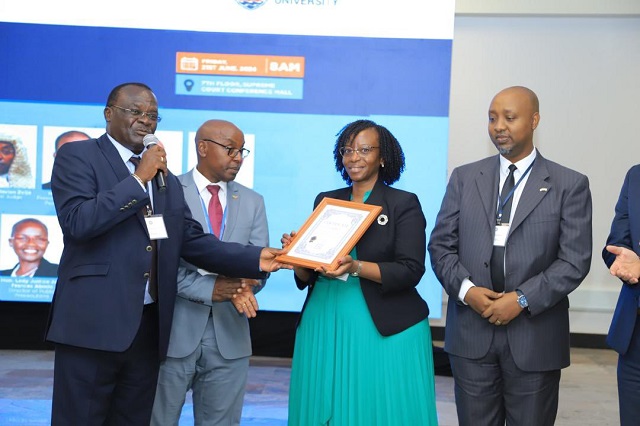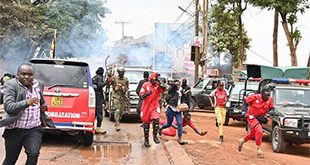
Mbarara, Uganda | THE INDEPENDENT | Over one thousand three hundred criminal cases were considered and concluded by Mbarara High Court through plea bargains. The plea bargain is one of the mechanisms instituted by the Judiciary to reduce case backlogs and caseloads. It also helps minimize costs in the administration of criminal justice.
Normally an accused person through his/her lawyer pleads guilty to the offenses brought against them in exchange for a lighter punishment from the Judicial Officer.
According to the Principal Judge, Dr. Flavian Zeijaplea bargaining statistics from January 2022 to June 19th, 2024 of all courts, and interestingly, Mbarara High Court Circuit was on the top with 1,320 cases through plea bargaining.
He noted that of that number, 518 were noncapital cases whereas 802 were capital cases such as murder, aggravated robbery, and terrorism among others. Dr. Zeija said that in the same period, Mbarara High Court Circuit completed 364 cases through nine criminal trial sessions.
He explained that 40 cases are cause-listed in each criminal session and comparatively, if he was to covert into sessions, the 802 cases completed through plea bargain, the courts of law would need 20 criminal sessions to dispose of the same number of cases.
He said that would translate into seven criminal sessions for a circuit each year and would drain the Judiciary’s meager resources.
The Principal Judge revealed this on Friday at the one-day 7th Annual Prebargain Conference held at the Judiciary Headquarters in Kampala.
It was attended by several both serving and retired Judicial Officers including Justices, Judges and registrars, law students from different institutions, lawyers, Chief Justice Alfonse Owiny-Dollo, and the DPP Jane Frances Abodo.
The conference was told that very few cases of plea bargaining go on appeal and it is the session trials that account for vast numbers of appeals in the appellate courts.
“Therefore, that means that quite often, full trials process a lot of workload for the Appellate courts whereas plea bargaining often leads to less work in the appellate courts hence helping in caseload and case backlog reduction at a cheaper cost”, said Zeija.
He explained further that even those few few cases completed in plea bargaining that have gone on appeal have raised pertinent concerns for which they discussed solutions.
He appealed to judicial officers to interest themselves on what Mbarara High Court is doing better and learn from it and implement its ideas in their respective courts across the country so as to continue fighting the backlog in the court system.
Records before the Judiciary indicate that they are currently stuck with more than 43,000 cases in backlog which are before different courts of law with the Commercial Court alone having cases worth trillions of shillings which would have been helpful to the economy if cases were concluded and money taken back to circulation.
Deputy Chief Justice, Richard Buteera who closed the conference said it helped them to refresh and train on how ple again should be handled.
He said plea bargain takes a short time and it’s very rewarding because it doesn’t take the longer process of prosecution calling for witnesses to testify in court and, the accused person to defend themselves in a full trial.
Buteera emphasized that Africans generally prefer settling their disputes through reconciliation and traditional ways of resolving differences and thus encouraged them to continue embracing plea bargain.
Justice Buteera commended Pepperdine University which recently trained mediators to help the Judiciary in handling cases through Alternative Dispute Resolution mechanisms such as reconciliation, arbitration and mediation which was also the Sponsor of the conference saying that the training came at the right time .
He said after the training, there is a lapse, and people forget what they did last time adding that they will continue organizing more trainings and encouraged Judicial officers to maintain the will, the spirit and the involvement.
*****
URN
 The Independent Uganda: You get the Truth we Pay the Price
The Independent Uganda: You get the Truth we Pay the Price


